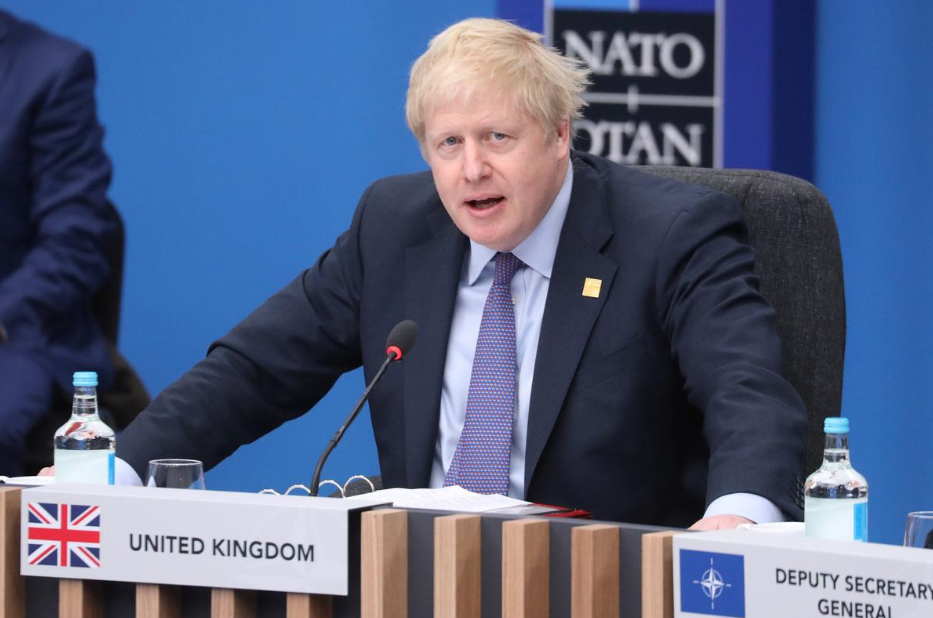China is not a strategic enemy of NATO, British PM tells reporters
By Jonathan Powell in London | China Daily Global | Updated: 2019-12-04 23:11

British Prime Minister Boris Johnson said discussions about China among members of the North Atlantic Treaty Organization at its 70th anniversary summit near London on Wednesday could be characterized as having an intention to build a "strategic partnership", but added that leaders felt NATO should remain "aware" in the field of technology network infrastructure.
Addressing a question from Chinese media about whether NATO sees China as a strategic partner or a strategic enemy, Johnson said there was no support among members for the idea that China should be viewed as an enemy.
Johnson said: "I think what people felt was that it was right that we should build a strategic partnership with China, but that we should be aware of the challenges that China presents, particularly when it comes to areas of high technology — I think that would be a fair characterization of the discussions."
Earlier, NATO Secretary-General Jens Stoltenberg said the alliance needs to address the challenges and opportunities posed by an increasingly powerful China, but added that his 29-member defense organization does not want to make an enemy out of Beijing.
Johnson also urged members to meet NATO spending guidelines, amid criticism from United States President Donald Trump that certain countries were not paying their fair share.
Only nine of the 29 member states are currently meeting the minimum requirement of contributing at least 2 percent of their GDP to defense.
In a statement given after the summit, NATO leaders said: "To stay secure, we must look to the future together." It acknowledged "challenges" posed by China and Russia, and pledged to take "stronger action" against terrorism.
The summit was overshadowed by tension between some leaders. Trump called Justin Trudeau "two-faced" over a video in which the Canadian leader appears to mock him. Trump cancelled a news conference planned for after the summit, telling reporters: "We'll go directly back. I think we've done plenty of news conferences."
Earlier in the day, Johnson played peacemaker as cracks emerged within the group as Trump and French President Emmanuel Macron set out opposing views.
The bloc's future is not in doubt, but there were sharp exchanges over many topics on Tuesday as the French president accused Turkey of colluding with Islamic State proxies while Trump described Macron's criticisms of NATO's "brain death" as insulting and "very, very nasty".
Johnson, as host, told gathered leaders at the summit: "Seventy years on, we are rock-solid in our commitment to NATO and to the giant shield of solidarity that now protects 29 countries and nearly 1 billion people."
Trump and Johnson spoke in an unscheduled separate meeting on the summit's sidelines on Tuesday. Trump tweeted that they "talked about numerous subjects including NATO and trade".
Macron stood by his comment that NATO was experiencing "brain death", saying it had spurred debate. He said: "I think it was our responsibility to raise ambiguities that could be harmful, and to tackle a real strategic debate."
Trump said European allies were "delinquent" in their failure to spend as much as the US on their armed forces.
In response, Europeans have said they will spend $400 billion collectively on defense by 2024.
"If we invest money and risk our soldiers' lives … we should be clear on NATO's fundamentals," Macron said on Twitter, adding that on Wednesday he would "defend the interests of France and Europe".
The three-hour summit also considered new threats, including in the areas of cyberspace and outer space, after NATO declared last month the realms among its operational domains alongside air, land and sea.























